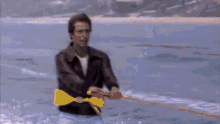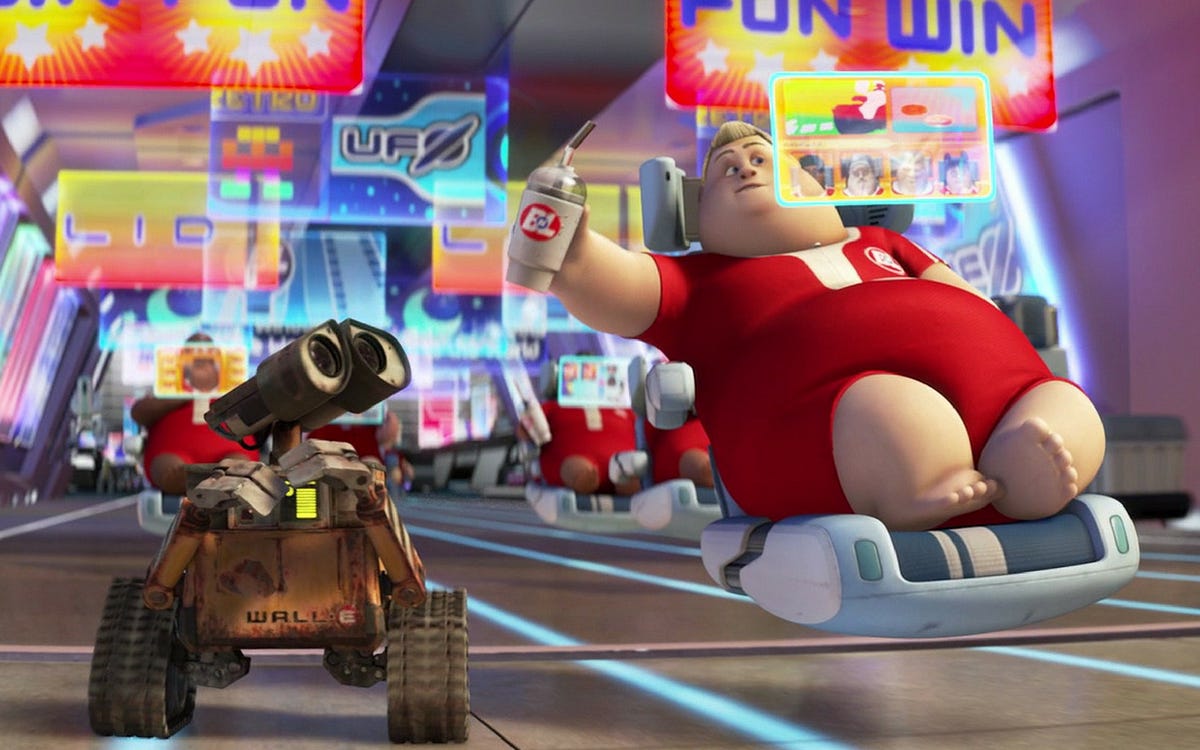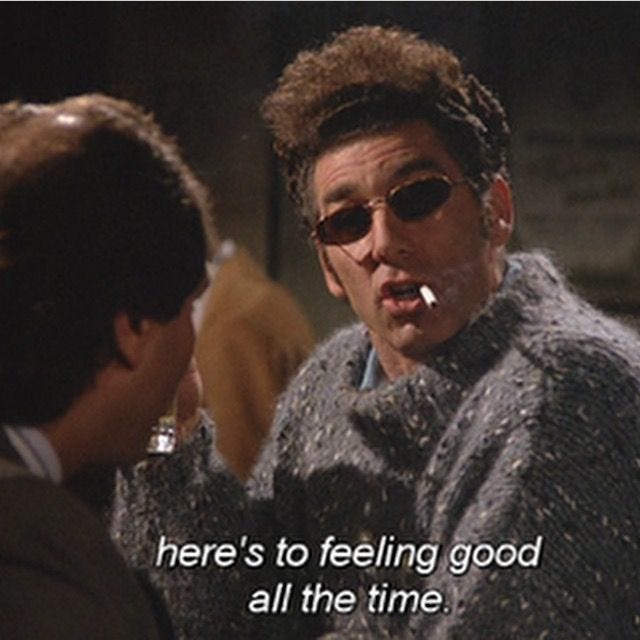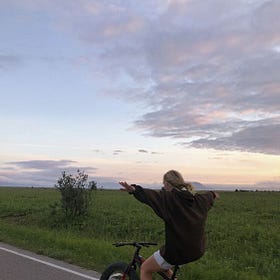it doesn't always feel good
“Alright, I’m going to the beach”, my Miami-based boss said as we wrapped up a phone call.
“Lucky…”, I muttered back, staring out the window at the trees dancing in the biting wind.
Don’t get me wrong, I love the high desert—I’m a mountain girl through and through—but sometimes I think lying in the sand by the ocean really would heal me. The cold… she wears on you.
“You should just move to Miami”, he said.
“Mmmm, absolutely not”, I replied.
We all hate this person— the one who complains and turns up their nose when you offer solutions. Sue me.
I went on to explain that I don’t think there’s anywhere else in the country I’d want to live. That even though the winter wears on me, I need it. I think most people do.
Look, I know I’ve done my share of complaining about how hard winter is (even in the last 30 seconds lol). Maybe I’m just trying to hype myself up for what’s to come, but winter is important.
Humans need to endure hard shit; otherwise, we get soft. In the Western World, we have it easy. All of our fundamental needs are ultimately met (ok, yes, there’s a lot of grey area here, but generally speaking, without getting into the nuance of it). If you make $30,000 a year in the United States, congratulations, you’re in the 1.2% wealthiest people in the world.
~*perspective*~
We’ve gone so far that if we don’t make the intentional decision to challenge ourselves physically, we suffer mentally. We need the acute stress of a hard workout, or running really far until we want to die, or jumping into a cold body of water, in order to calibrate our internal lives.
But how did we get to this point? How did we get so soft? My best guess is that our incessant need to innovate is—at least partially—to blame.
The innovation paradox
The human condition could probably be summed up best as “avoid pain, seek pleasure.” It’s what pushes us to do…literally everything. It’s what sparks our drive to constantly innovate. And humans are nothing if not innovation machines. We’re hard-wired for it. And we’re lucky we are—we’re here because eons of generations of humans rose to changing environmental and social pressures, using innovation to ensure the species keeps adapting and moving forward. There are also deep, inescapable neurological grooves that have been worn in over millennia, like the dopaminergic system that motivates us to move, seek novelty, and predict rewards.
For better or for worse, we can’t escape innovation.
But here’s where we jumped the shark:
Up until very recently, technology, from spears to airplanes, served to enhance human capabilities. However, with the advent of the information technology revolution, there’s been a shift towards technologies that completely substitute human functions. For instance, tools like Google Maps diminish our innate sense of direction, search engines reduce our reliance on memory, and things like DoorDash, AI chatbots, and self-checkout ensure that you never have to endure that pesky inconvenience of interacting with another human being. Technology and innovation become a sort of parasite of human abilities, potentially resulting in a loss of essential skills and autonomy.
This, I think, is why there is such a purpose and meaning crisis in Western culture—We’ve rendered ourselves useless, innovated ourselves into obsolescence, outsourced the things that humans literally do to technology. And now, it’s up to us to choose temporary discomfort and inconvenience as the price of admission for a full and fulfilling life, or deal with the long-term suffering of lack of purpose.
Friction
Hustle culture has made us believe that faster is better—The faster we can do something, the more we can do in less time. AND IT’S ALL ABOUT MORE!!! Asking Chat to summarize a book to distill the core information is the same as having read the book, minus the friction of the time it takes to actually read the book itself.
Hurray!
Except, not hurray, because it’s entirely not the same. In the process of reading that book, maybe there was a line that shifted the way you fundamentally thought about everything. Maybe you discover an aquantence had also read the book and it sparks a friendship, or someone saw you reading it at a coffee shop, and you would have otherwise missed an opportunity for connection.
The process is the point.
And since we’re on the topic of generative AI: There was a recent MIT study that had participants write an essay using either ChatGPT, Google, or their own brainpower. When participants used AI, their essays consistently scored lower in originality and depth than those who used search or wrote unaided. Additionally, brain imaging revealed that ChatGPT users experienced a decline in cognitive engagement, and brain regions associated with attention, memory, and higher-order reasoning were noticeably less active. Another study found that the compulsive use of large language models led to a significant increase in anxiety, burnout, and sleep disturbances.
THE PROCESS IS THE POINT.
A lighter needs friction to spark a flame.
And, what we’re finding out in real-time, is that you don’t get a big, juicy life that feels good to be inside without enduring a bit of friction.
The things that are good for us often don’t immediately feel good.
There’s a lifestyle movement I’m noticing is gaining steam right now that seems to bias comfort on an extreme level. Call it Slow Living 2.0. Where the original Slow Living movement seemed to be about intentionality, Slow Living 2.0 centers around what feels safe, calm, and comforting to the nervous system (which is NOT a regulated nervous system, btw). Likely an overcorrection of hustle culture and a reaction to optimization burnout (and oligarchic trickle-down, but that’s a rabbit hole for another day), SL 2.0 turns every moment into a self-care opportunity. Rest is social currency—the mark of affluence and sophistication. Oh, you’re money-rich? That’s cute. I’m leisure-rich.
This kind of lifestyle is often marked by stringent routines and hard boundaries. Which, on paper, sounds pretty great. We love routines and boundaries. But over time, you become more and more resistant to anything hard. Any mild conflict or moderate inconvenience feels catastrophic. Anything out of routine feels out of control.
But your boundaries cann just end up keeping you contained from a rich and deeply lived life.
And when we only lean in to what feels nice in the moment, this is what you end up with:
now vs later
With every new development, every piece of technology that bears the promise of removing the friction from our lives, we become increasingly primed for instant gratification. We forgo future planning in favor of prioritizing what feels good right now.
I could scroll TikTok into the night, eat a dozen donuts, and rail a line and feel really good right now. All at the expense of my future self, who is going to feel like shit.
But if you want the deep satisfaction and gratification of having accomplished something difficult—which is the only way you really grow—you have to learn to show up, even when it’s hard, even when you don’t feel like it.
You don’t become Laird Hamilton without getting in the water. Without getting demolished by a few waves. Without eating sand. Without showing up on days when you don’t want to be there, when you feel like surfing is the most god-forsaken thing on the planet.
You don’t run a marathon without showing up for every training run, even when it’s boring or hard or pouring rain, and you really don’t want to.
If you want to get good at playing the piano, you have to play the basics and hit some wrong notes, as arduous and frustrating as it might be.
If you think every time I (or anyone else, I’d imagine) sit down to write, that divine inspiration sprinkles down on me from the heavens, fingers feverishly flying across the keyboard to keep up with my effortless stream of consciousness, think again. More often than not, I really don’t feel like sitting down to write; inspiration is fleeting, and I spend a lot of time staring into the void, trying to coax just one thought to come through. And when thoughts do come, they’re often clunky and half-baked. Creativity is not always lightning bolts of genius and flow states. But to get those moments, I have to show up in the moments I don’t want to. That’s the deal.
You don’t accomplish anything worthwhile without the risk of failure. Without it feeling like shit sometimes. Without being bored, annoyed, or embarrassed. It’s not always going to feel good. But that’s what makes having achieved it feel so good.
It’s not just about “achievement”, by the way. It’s about fully meeting yourself. Truly seeing what you’re made of. Exploring all of the nooks and crannies of your being and the depths of the human experience. Seeing who you might become in the process.
If you never go through any struggle or endure anything hard to get to where you want to go and just prioritize immediate comfort over all else, guess what? You’re going to feel fucking stuck and depressed because you’re not going to feel that spark of aliveness.
The Law of Inertia
The law of inertia states that objects in motion stay in motion. Likewise, you get good at what you practice. Are you practicing staying at home on the couch? Are you practicing your rigid routine? Or are you practicing stepping into the unknown, adventure, curiosity, awe? You will continue to accumulate more of what you put your energy into.
When I’ve been in a habit of hanging out at home, going through the motions, the thought of getting up to go do something feels nearly impossible. How far away is the hike? UGH.
The activation energy required to overcome the inertia of it feels like trying to lift 1000 lbs.
But when I’m coming off a streak of adventure, I just want to keep going. 4 days after I got from a hut-to-hut hiking trip in Italy, I got up at 2 am to climb a mountain, no problem.
We have to be practiced at leaning into friction; otherwise, our drive for comfort will take over, and its inertia will drag us into motionless isolation. If what you’re after is a life of experience and depth—which, if you’ve gotten this far, I think it is—you need to seek out friction. Become familiar with the uncomfortable. Do it on purpose. Make friends with it. Learn to see it as a good thing. So when life decides to bestow friction upon you, it won’t break you. On the contrary, you might even find it exciting, even beautiful.
Please do not misunderstand me: I’m not saying you should become a glutton for punishment and live a tortured existence. Pleasure is a nutrient. But the dose makes the poison. A little bit of spinach is good for you—too much will give you kidney stones.
You can’t fully appreciate the light without the dark.
It doesn’t always feel good, but it adds up to something that does.
if you enjoyed this piece and want to support my work, but don’t want to commit to a subscription, I get it
You might also enjoy…
bored out of our minds
I am plagued by possibilities. As a multi-passionate jack-of-all-trades, this is the albatross around my neck. Whenever something new and exciting drifts into my awareness, I immediately want it.
a life with teeth
I have led a toothless life. . . A toothless life. I have never bitten into anything. I was waiting. I was reserving myself for later on-and I have just noticed that my teeth have gone. What’s to be done? Break the shell? That’s easily said. Besides, what would remain? A little viscous gum, oozing through the dust and leaving a glistering trail behind it.









love this! it sparked two thoughts for me: 1) you can’t control outcomes, but can you can create conditions. 2) re: friction (and to quote from a podcast conversation between Ezra Klein and David Perrell on AI: “It’s not the wave that changes you. It’s the erosion.” THIS unlocked a whole new realm of thought for me when it comes to the real risks and rewards of taking shortcuts with AI. 🌊
Thank you for this always relevant reminder to value the challenge in life!